Filter by

Characterization of meso-Dihydroguaiaretic acid (MDGA) derivative as an anti-…
Inflammation is a crucial part of the immune response, involving neutrophils, the predominant white blood cells, in combating pathogens. Their recruitment is regulated during inflammation, which can lead to conditions like autoimmune diseases and cancer. This study aims to explore meso- Dihydroguaiaretic acid (MDGA) derivatives, particularly MZ47, as potential therapeutic options for neut…
- Edition
- -
- ISBN/ISSN
- -
- Collation
- -
- Series Title
- -
- Call Number
- BM 24-001
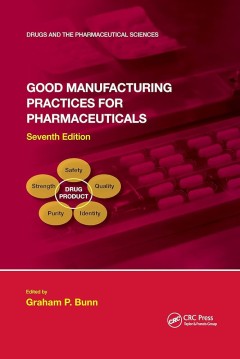
Good manufacturing practices for pharmaceuticals seventh edition
- Edition
- Seventh edition
- ISBN/ISSN
- 9781032178387
- Collation
- xiii, 371 p. : ill. : ind. ; 25 cm
- Series Title
- -
- Call Number
- 338.4 Goo
- Edition
- Seventh edition
- ISBN/ISSN
- 9781032178387
- Collation
- xiii, 371 p. : ill. : ind. ; 25 cm
- Series Title
- -
- Call Number
- 338.4 Goo

Pharmaceutical experimental design
- Edition
- -
- ISBN/ISSN
- 9780367447748
- Collation
- vi, 498 p. : ill. : ind. ; 23 cm.
- Series Title
- -
- Call Number
- 615.19 Lew p
- Edition
- -
- ISBN/ISSN
- 9780367447748
- Collation
- vi, 498 p. : ill. : ind. ; 23 cm.
- Series Title
- -
- Call Number
- 615.19 Lew p
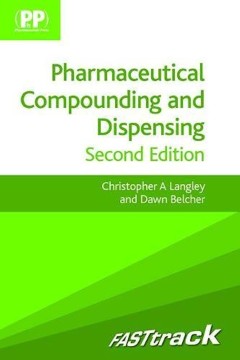
FASTtrack: pharmaceutical compounding and dispensing second edition
- Edition
- Second edition
- ISBN/ISSN
- 9780857110558
- Collation
- viii, 216 p. : ill. : ind. ; 24 cm.
- Series Title
- -
- Call Number
- 615.19 Lan p
- Edition
- Second edition
- ISBN/ISSN
- 9780857110558
- Collation
- viii, 216 p. : ill. : ind. ; 24 cm.
- Series Title
- -
- Call Number
- 615.19 Lan p

Principles of research design and drug literature evaluation second edition
- Edition
- Second edition
- ISBN/ISSN
- 9781260460797
- Collation
- xiii, 268 p. : ill. : ind. ; 28 cm.
- Series Title
- -
- Call Number
- 615.10724 Pri
- Edition
- Second edition
- ISBN/ISSN
- 9781260460797
- Collation
- xiii, 268 p. : ill. : ind. ; 28 cm.
- Series Title
- -
- Call Number
- 615.10724 Pri
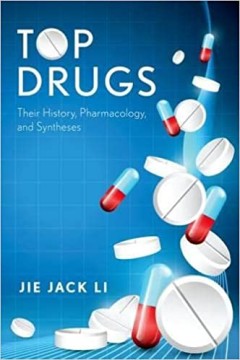
Top drugs : their history, pharmacology, syntheses
- Edition
- -
- ISBN/ISSN
- 9780199362585
- Collation
- xi, 206 p. : ill. : ind. ; 25 cm.
- Series Title
- -
- Call Number
- 615.1 Li t
- Edition
- -
- ISBN/ISSN
- 9780199362585
- Collation
- xi, 206 p. : ill. : ind. ; 25 cm.
- Series Title
- -
- Call Number
- 615.1 Li t

IN VITRO EVALUATION OF PECTIN-BASED DRUG DELIVERY SYSTEM FOR COLORECTAL CANCE…
Colorectal cancer (CRC) still becomes the second leading cause of global cancer-related mortalities, despite the advances in diagnosis and treatment. Chemotherapeutic drugs, such as 5- fluorouracil (5-FU), still becomes the main treatment modalities for CRC, despite its rapid elimination rate and diverse adverse reactions. Recently, strategies to establish targeted drug delivery systems for the…
- Edition
- -
- ISBN/ISSN
- -
- Collation
- -
- Series Title
- -
- Call Number
- BM 21-013

Farmakope Indonesia edisi VI 2020 jilid II
- Edition
- Edisi VI 2020
- ISBN/ISSN
- 9786233010177
- Collation
- 1226 p. : ill. : ind. ; 25 cm
- Series Title
- -
- Call Number
- 615.1 Ind f
- Edition
- Edisi VI 2020
- ISBN/ISSN
- 9786233010177
- Collation
- 1226 p. : ill. : ind. ; 25 cm
- Series Title
- -
- Call Number
- 615.1 Ind f

Farmakope Indonesia edisi VI 2020 jilid I
- Edition
- Edisi VI 2020
- ISBN/ISSN
- 9786233010177
- Collation
- 1098 p. : ill. : ind. ; 25 cm.
- Series Title
- -
- Call Number
- 615.1 Ind f
- Edition
- Edisi VI 2020
- ISBN/ISSN
- 9786233010177
- Collation
- 1098 p. : ill. : ind. ; 25 cm.
- Series Title
- -
- Call Number
- 615.1 Ind f

Formularium medicamentorum selectum F.M.S. R/
- Edition
- -
- ISBN/ISSN
- -
- Collation
- 181 p. : ill. : ind. ; 19 cm.
- Series Title
- -
- Call Number
- 615.1 For
- Edition
- -
- ISBN/ISSN
- -
- Collation
- 181 p. : ill. : ind. ; 19 cm.
- Series Title
- -
- Call Number
- 615.1 For
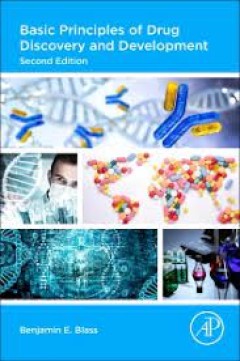
Basic principles of drug discovery and development second edition
- Edition
- Second edition
- ISBN/ISSN
- 9780128172148
- Collation
- xvii, 718 p. : ill. : ind. ; 23 cm.
- Series Title
- -
- Call Number
- 615.19 Bla b
- Edition
- Second edition
- ISBN/ISSN
- 9780128172148
- Collation
- xvii, 718 p. : ill. : ind. ; 23 cm.
- Series Title
- -
- Call Number
- 615.19 Bla b
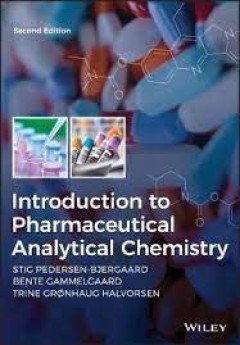
Introduction to pharmaceutical analytical chemistry
- Edition
- Second edition
- ISBN/ISSN
- 9781119362722
- Collation
- xix, 520 p. : ill. : ind. ; 25 cm.
- Series Title
- -
- Call Number
- 615.19 Ped i
- Edition
- Second edition
- ISBN/ISSN
- 9781119362722
- Collation
- xix, 520 p. : ill. : ind. ; 25 cm.
- Series Title
- -
- Call Number
- 615.19 Ped i
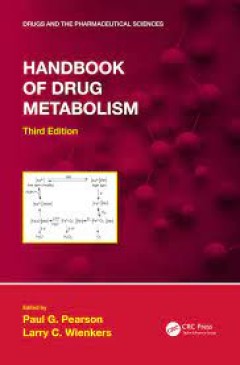
Handbook of drug metabolism third edition
- Edition
- Third edition
- ISBN/ISSN
- 9781482262032
- Collation
- xviii, 735 p. : ill. : ind. ; 26 cm.
- Series Title
- -
- Call Number
- 615.1 Han
- Edition
- Third edition
- ISBN/ISSN
- 9781482262032
- Collation
- xviii, 735 p. : ill. : ind. ; 26 cm.
- Series Title
- -
- Call Number
- 615.1 Han
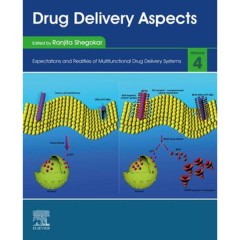
Drug delivery aspects : volume 4: expectations and realities of multifunction…
Drug Delivery Aspects: Expectations and Realities of Multifunctional Drug Delivery Systems examines the fabrication, optimization, and scale-up of nano and micro carriers. Various aspects like conversion of micro-nano particles into solid dosage form, large scale industry manufacturing challenges of nanocarriers, regulatory considerations on drug device combinations are featured in this volume.…
- Edition
- Volume 4
- ISBN/ISSN
- 9780128218501
- Collation
- xi, 254 p. : ill. ; 24 cm.
- Series Title
- -
- Call Number
- 615.191 Dru
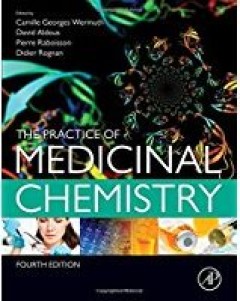
The practice of medicinal chemistry fourth edition
The Practice of Medicinal Chemistry, Fourth Edition provides a practical and comprehensive overview of the daily issues facing pharmaceutical researchers and chemists. In addition to its thorough treatment of basic medicinal chemistry principles, this updated edition has been revised to provide new and expanded coverage of the latest technologies and approaches in drug discovery. With topics …
- Edition
- Fourth
- ISBN/ISSN
- 9780124172050
- Collation
- xxii, 880 p. : ill. : ind. ; 29 cm.
- Series Title
- -
- Call Number
- 615.19 Pra
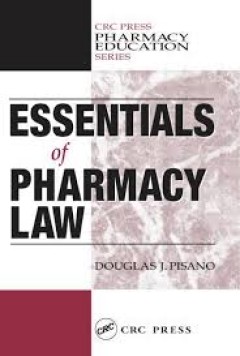
Essentials of pharmacy law
This book examines the laws and regulations relating to the practice of the pharmacy and the regulation and control of drugs.
- Edition
- -
- ISBN/ISSN
- 9781566769181
- Collation
- 124 p. : ind. ; 24 cm.
- Series Title
- -
- Call Number
- 344.73 Pis e

Farmakope Indonesia
- Edition
- Fifth Edition
- ISBN/ISSN
- 9786022354635
- Collation
- xix, i: 23 p, 673 p, 16 x 24 cm
- Series Title
- -
- Call Number
- 615.1 Ind f
- Edition
- Fifth Edition
- ISBN/ISSN
- 9786022354635
- Collation
- xix, i: 23 p, 673 p, 16 x 24 cm
- Series Title
- -
- Call Number
- 615.1 Ind f
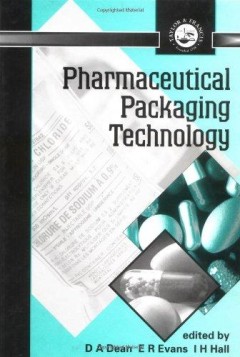
Pharmaceutical Packaging Technology
- Edition
- -
- ISBN/ISSN
- 0748404406
- Collation
- x, 635 p + index, 25 x 17 cm
- Series Title
- -
- Call Number
- 615.18 Dea p
- Edition
- -
- ISBN/ISSN
- 0748404406
- Collation
- x, 635 p + index, 25 x 17 cm
- Series Title
- -
- Call Number
- 615.18 Dea p
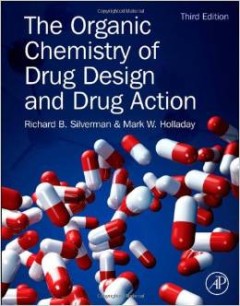
The organic chemistry of drug design and drug action
The Organic Chemistry of Drug Design and Drug Action, Third Edition, represents a unique approach to medicinal chemistry based on physical organic chemical principles and reaction mechanisms that rationalize drug action, which allows the reader to extrapolate those core principles and mechanisms to many related classes of drug molecules. This new edition reflects significant changes in the proc…
- Edition
- 3rd edition
- ISBN/ISSN
- 9780123820303
- Collation
- xviii, 517 p. : ill. : ind. ; 29 cm.
- Series Title
- -
- Call Number
- 615.19 Sil o
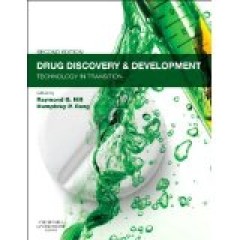
Drug discovery and development : technology in transition
The modern pharmacopeia has enormous power to alleviate disease, and owes its existence almost entirely to the work of the pharmaceutical industry. This book provides an introduction to the way the industry goes about the discovery and development of new drugs. The first part gives a brief historical account from its origins in the mediaeval apothecaries’ trade, and discusses the changing und…
- Edition
- Second
- ISBN/ISSN
- 9780702042997
- Collation
- xiv, 345 p. : ill. : ind. ; 25 cm.
- Series Title
- -
- Call Number
- 615.1 Dru
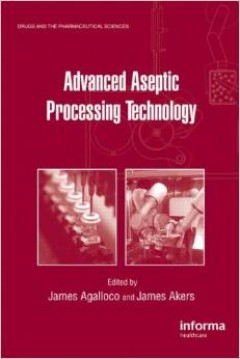
Advanced aseptic processing technology
The preparation of sterile products using aseptic processing is considered perhaps the most critical process in the pharmaceutical industry and has witnessed continual improvement over the last half century. New approaches that have transformed classical aseptic production methods are appearing almost daily. This book reviews emerging technologies for aseptic processing that will markedly reduc…
- Edition
- -
- ISBN/ISSN
- 9781439825433
- Collation
- xi, 481 p. : ill. : ind. ; 26 cm.
- Series Title
- -
- Call Number
- 615.19 Adv
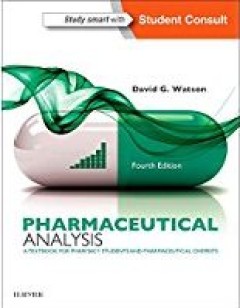
Pharmaceutical analysis : a textbook for pharmacy students and pharmaceutical…
Pharmaceutical analysis forms a core part of any pharmacy programme, as well as being essential for pharmacology and medicinal chemistry courses. Pharmaceutical analysis determines the purity, concentration, active compounds, shelf life, rate of absorption in the body, identity, stability, rate of release etc. of a drug. Testing a pharmaceutical product involves a variety of analyses, and the …
- Edition
- Fourth
- ISBN/ISSN
- 9780702069895
- Collation
- xv, 461 p. : ill. : ind. ; 25 cm.
- Series Title
- -
- Call Number
- 615.1901 Wat p
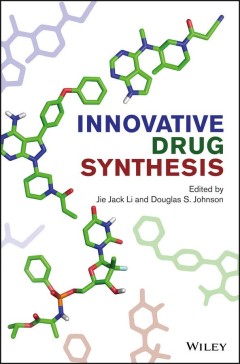
Innovative drug synthesis
This book covers all aspects of the medicinal chemistry of the latest drugs, and the cutting-edge science associated with them. Following the editors’ 3 successful drug synthesis books, this provides expert analysis of the pros and cons of different synthetic routes and demystifies the process of modern drug discovery for practitioners and researchers.
- Edition
- -
- ISBN/ISSN
- 9781118820056
- Collation
- xv, 341 p. : ill. : ind. ; 26 cm.
- Series Title
- -
- Call Number
- 615.19 Inn
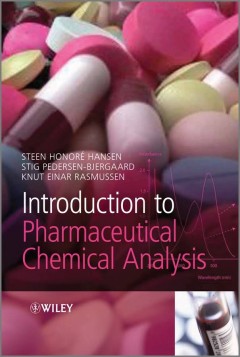
Introduction to pharmaceutical chemical analysis
This textbook is the first to present a systematic introduction to chemical analysis of pharmaceutical raw materials, finished pharmaceutical products, and of drugs in biological fluids, which are carried out in pharmaceutical laboratories worldwide. In addition, this textbook teaches the fundamentals of all the major analytical techniques used in the pharmaceutical laboratory, and teaches the…
- Edition
- -
- ISBN/ISSN
- 9780470661215
- Collation
- xvi, 494 p. : ill. : ind. ; 26 cm.
- Series Title
- -
- Call Number
- 615.19 Han i
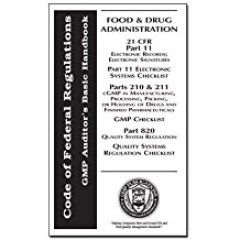
2016 US multi-gmps - code of federal regulations : title 21-food and drugs
- Edition
- -
- ISBN/ISSN
- -
- Collation
- []. : ill. ; 16 cm.
- Series Title
- -
- Call Number
- 344 Cod
- Edition
- -
- ISBN/ISSN
- -
- Collation
- []. : ill. ; 16 cm.
- Series Title
- -
- Call Number
- 344 Cod
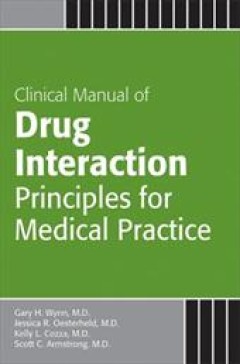
Clinical manual of drug interaction principles for medical practice
- Edition
- -
- ISBN/ISSN
- 9781585622962
- Collation
- xiii, 594 p
- Series Title
- -
- Call Number
- 615. 704 5 Wyn c
- Edition
- -
- ISBN/ISSN
- 9781585622962
- Collation
- xiii, 594 p
- Series Title
- -
- Call Number
- 615. 704 5 Wyn c
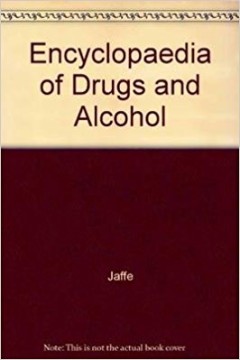
Encyclopedia of drugs and alcohol volume 4
- Edition
- -
- ISBN/ISSN
- 0-02-897185-X
- Collation
- lii, 1861 p. : ill. ; 29 cm.
- Series Title
- -
- Call Number
- 615.103 Jaf e
- Edition
- -
- ISBN/ISSN
- 0-02-897185-X
- Collation
- lii, 1861 p. : ill. ; 29 cm.
- Series Title
- -
- Call Number
- 615.103 Jaf e

Encyclopedia of drugs and alcohol volume 2
- Edition
- -
- ISBN/ISSN
- 0-02-897185-X
- Collation
- iii, 1861 p. : ill. ; 29 cm.
- Series Title
- -
- Call Number
- 615.103 Jaf e
- Edition
- -
- ISBN/ISSN
- 0-02-897185-X
- Collation
- iii, 1861 p. : ill. ; 29 cm.
- Series Title
- -
- Call Number
- 615.103 Jaf e

Encyclopedia of drugs and alcohol volume 1
- Edition
- -
- ISBN/ISSN
- -
- Collation
- iii, 1861 p. : ill. ; 29 cm.
- Series Title
- -
- Call Number
- 615.103 Jaf e
- Edition
- -
- ISBN/ISSN
- -
- Collation
- iii, 1861 p. : ill. ; 29 cm.
- Series Title
- -
- Call Number
- 615.103 Jaf e

Encyclopedia of drugs and alcohol volume 3
- Edition
- -
- ISBN/ISSN
- 0-02-897185-X
- Collation
- lii, 1861 p. : ill. ; 29 cm.
- Series Title
- -
- Call Number
- 615.103 Jaf e
- Edition
- -
- ISBN/ISSN
- 0-02-897185-X
- Collation
- lii, 1861 p. : ill. ; 29 cm.
- Series Title
- -
- Call Number
- 615.103 Jaf e
 Computer Science, Information & General Works
Computer Science, Information & General Works  Philosophy & Psychology
Philosophy & Psychology  Religion
Religion  Social Sciences
Social Sciences  Language
Language  Pure Science
Pure Science  Applied Sciences
Applied Sciences  Art & Recreation
Art & Recreation  Literature
Literature  History & Geography
History & Geography